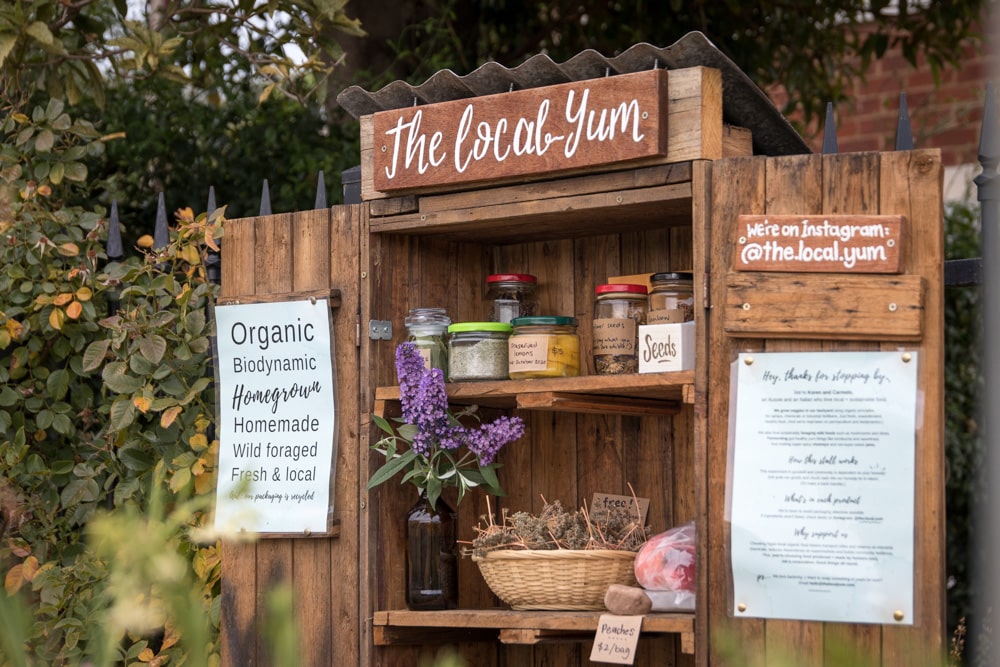

Sharing veggies with neighbours via an honesty stall plonked out the front of your place is an amazing way to build community connection and local resilience – and it’s really fun, too.
The basic ideas is this –
You bang together some kind of stall out of secondhand shelves, a bookcase, a broken old fridge … anything that works for you.
Then collect up the produce you have to spare – all those homegrown zucchinis, perhaps, or fruit from that feral apricot tree down the road, or dried herbs for tea; whatever really. Pop it on the stall and allow passers-by to take what they wish.
You can assign prices and leave a cash box on your stall, and trust that people will respect the honesty system and pay correctly (which they mostly do, even in urban areas).
Or you can share food absolutely free, following the ‘take what you need, give what you can’ philosophy.
The surprising thing about creating such a stall, is that it becomes about so much more than food.
Lessons from launching an Adelaide honesty stall
I say all this as a fairly new stall-keeper myself.
In September 2020, my partner Carmelo and I launched a tiny urban honesty stall out the front of our Adelaide rental, on Kaurna land. It’s since become a low-key obsession of ours.
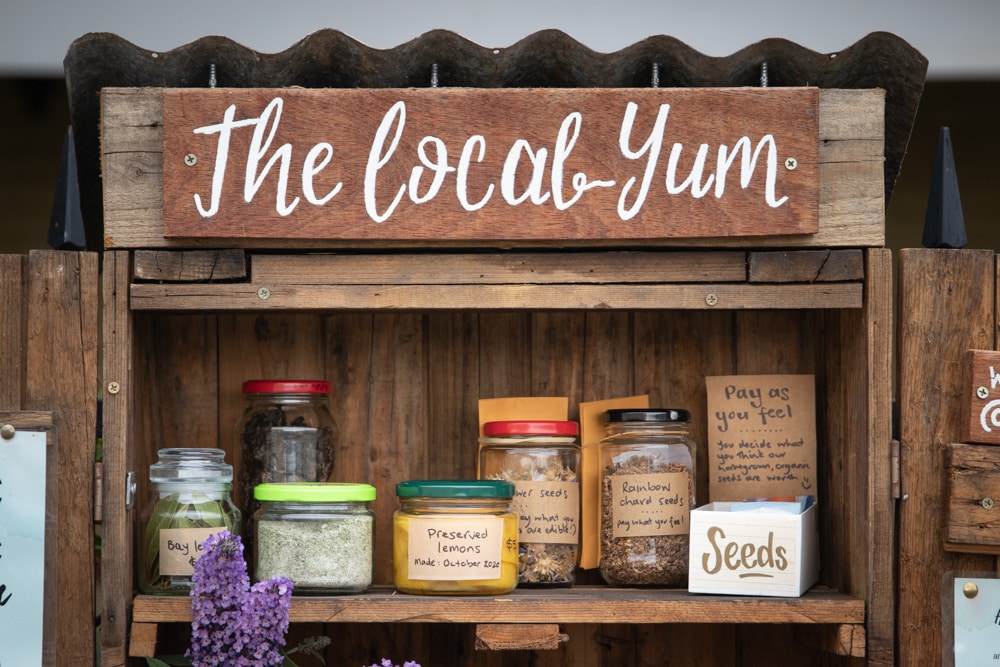
We initially created our stall, called The Local Yum, with plans to share excess produce from our backyard veggie patch.
Side note: this was probably a touch ambitious.
We’re novice gardeners, growing on our 500sq m rental property, and barely produce enough to feed ourselves. But we love to forage wild foods, glean unwanted fruit from city trees, and make things out of plants that some folks consider useless weeds. So it works. Somehow.
I guess I’m saying: you definitely don’t need to be a super-gardener or have a huge growing space to become an honesty stall-keeper.
Integrating permaculture principles into honesty stall-keeping
We’ve discovered the simple act of sharing food via our stall becomes a daily invitation to interact with literally all 12 permaculture principles.
For example –
Use Edges and Value the Marginal (principle 11): Street verges are the most marginal spaces in urban areas, often unplanted, uncared for and sprayed repeatedly by councils. We’ve reclaimed ours, planted it out, made it a space for community sharing – and perhaps gently encouraged others to think more creatively about the space between their front gate and the road.
Observe and Interact (principle 1): This takes so many forms – where is the sun falling on our stall as the seasons change, and how is this affecting our produce? Which products do people love and which tend to sit on the stall for longer, and therefore might need a bit more explanation or tweaking?
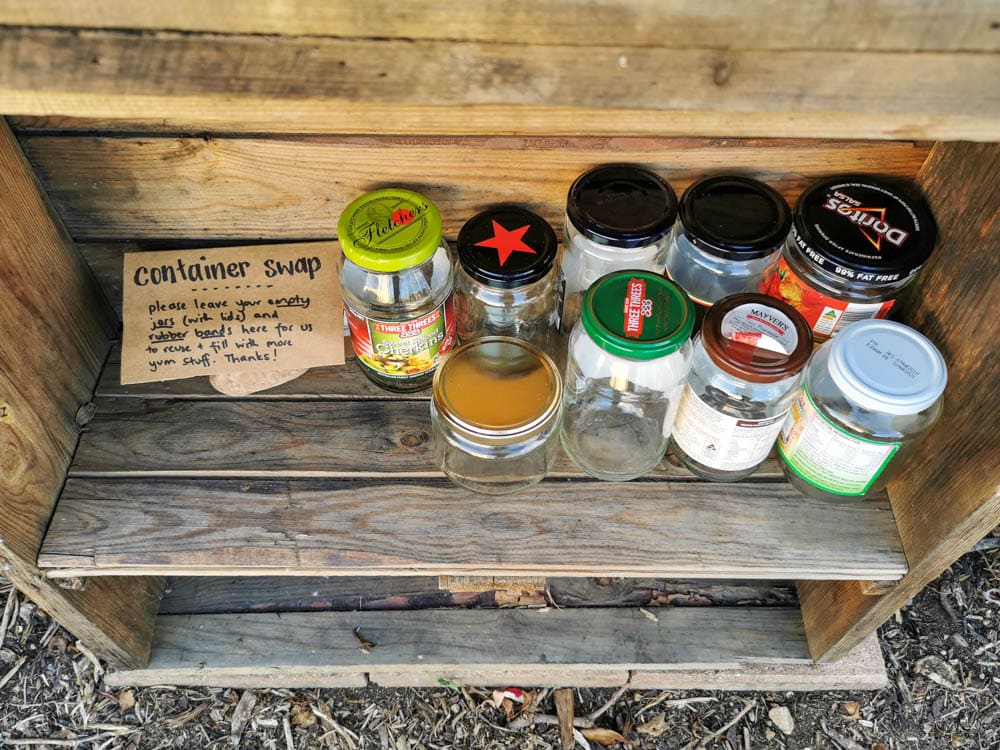
Produce No Waste (principle 6): We aim to package our products in recycled materials as much as possible. So when we run out of jars, rubber bands or pot plants, we pop a sign on the stall asking our community to leave us their old ones, and pretty quickly donations come flooding in. It’s a simple way we can keep the circle of reuse happening in our local community.
Apply Self-Regulation and Accept Feedback (principle 4): A little notebook and a pen left on our stall allows passers-by to give us feedback. It’s lovely to receive a handwritten note, and folks often leave helpful suggestions about what would work better for them.
And I could go on! But I think you get the picture – honesty stalls really can be a practical way to put permaculture into action at your place.
Beyond the monetary economy: free sharing stalls
Then there are folks who choose to share food absolutely free.
If you’re wanting to give this a try, there’s a few well-established movements you could get involved with for support and ideas.
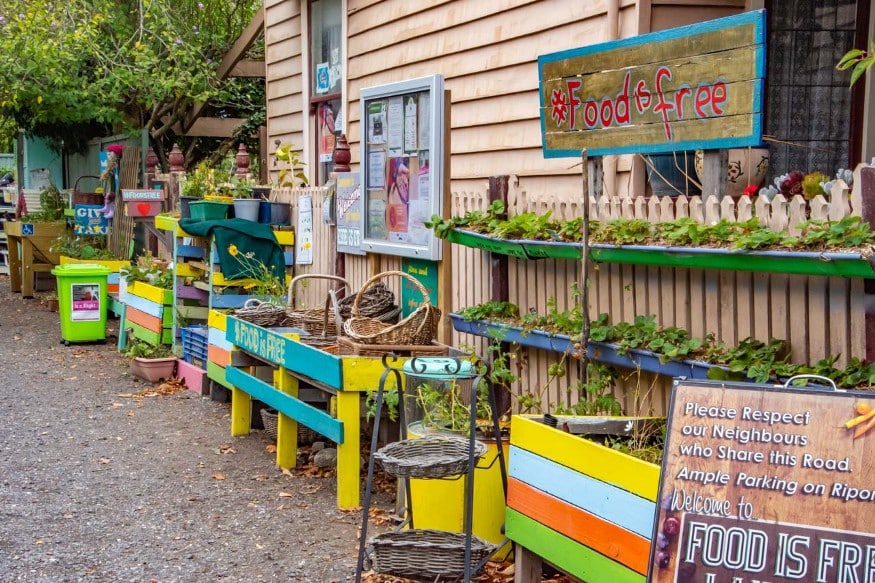
The Food is Free Project began in Texas in 2012. It encourages you to connect with your neighbours by planting a front yard garden or sharing your harvest via a #foodisfree table.
It has since grown into a worldwide community and food movement, with hundreds of cities involved.
Perhaps the best-known example here in Australia is Food is Free Ballarat – at the junction of Wadawurrung and Djab Wurrung country.
Lou Ridsdale (who also happens to be a Milkwood Permaculture Living course graduate, and who is a total legend besides) started the project in 2014 from a laneway next to her rental – a place for people to drop off or collect surplus nutritious food for free, while connecting with the local neighbourhood.
In a similar vein, Andrew Barker began Grow Free in South Australia in 2013, initially just by giving away seedlings in his backyard.
That quickly grew to a national movement of Grow Free carts (you can see a map of them here), all sharing produce, seedlings and more under the motto: ‘Take what you need, give what you can.’
“Mostly, we give our time and energy to others just because we can. Because no matter how dire things may seem, compassion can always shine through” – that’s the beautiful way Andrew summed it up during his TEDx Adelaide talk.
Other options include community sharing corners, like this cute one by local legend Anna, The Urban Nanna in Naarm/Melbourne.
Or you might join Food Not Lawns, an international network of gardeners and activists dedicated to sharing food, seeds, tools, land, skills and other resources with folks in their local communities.
Are you a keeper of an honesty box, free food stall or something similar? Or perhaps you’ve always wanted to give it a go? Feel free to comment below and tell us all where you are and how it’s going…
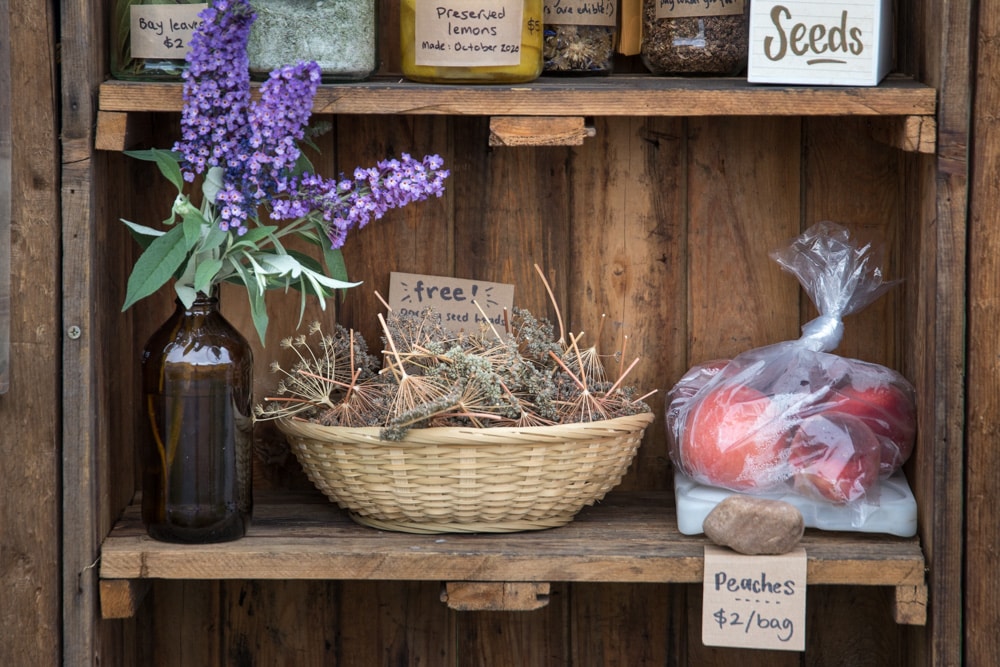
Resources
Articles
- How To Start Your Own Food Is Free Site – from the Ballarat group.
- How to make an urban roadside honesty stall – a detailed guide (written by me!)
- How To Start A Street Library – Tips And Tricks From A Street Librarian – if you’re not interested in an honesty stall for food, perhaps you might like to try a street library?
Websites and hashtags
- Food is Free Inc (USA/global)
- Grow Free (Australia/global) – check the map to see if there’s one near you. Their Facebook group is also very active.
- Food Not Lawns (USA/global)
- If you’re into Instagram, you might like to explore and connect with folks using hashtags such as #aussiehonestystall and #urbanhonestystall, and Australian state-based hashtags such as #sahonestystall.
Koren Helbig is a storyteller, permaculture person, and keeper of The Local Yum, an urban Adelaide (Kaurna land) honesty stall full of homegrown produce.

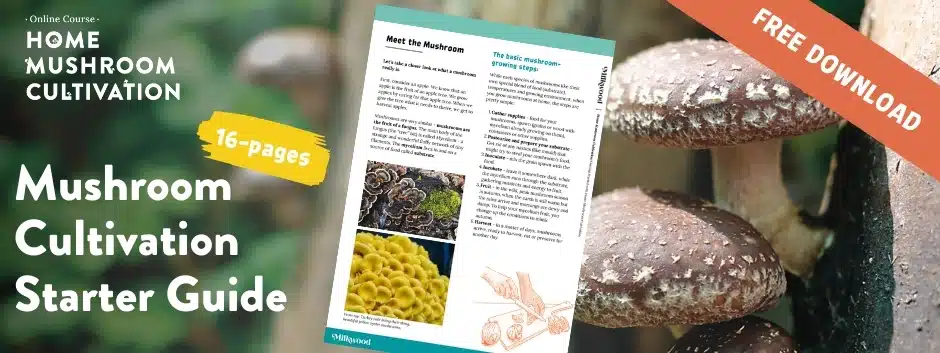
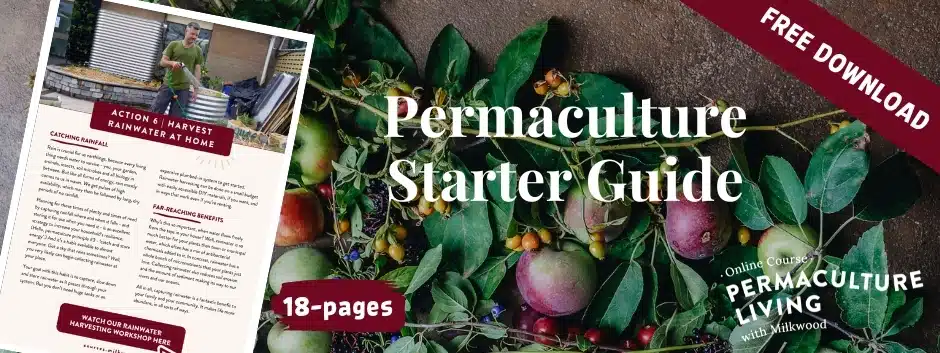
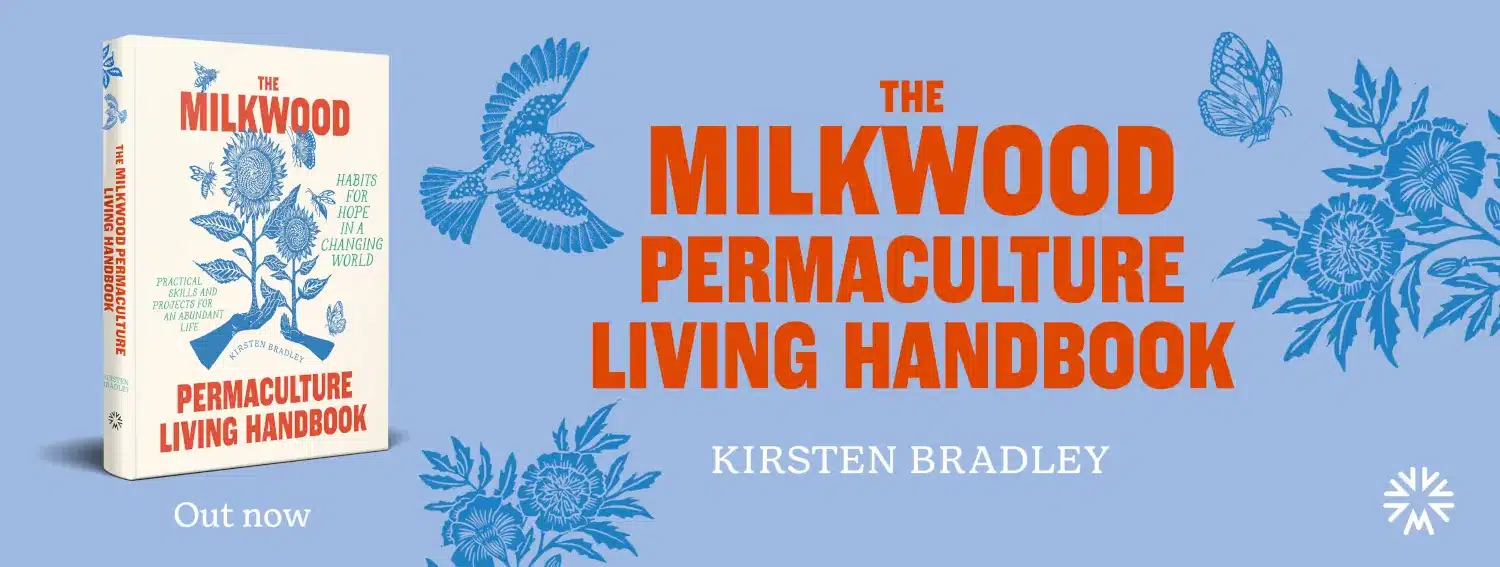
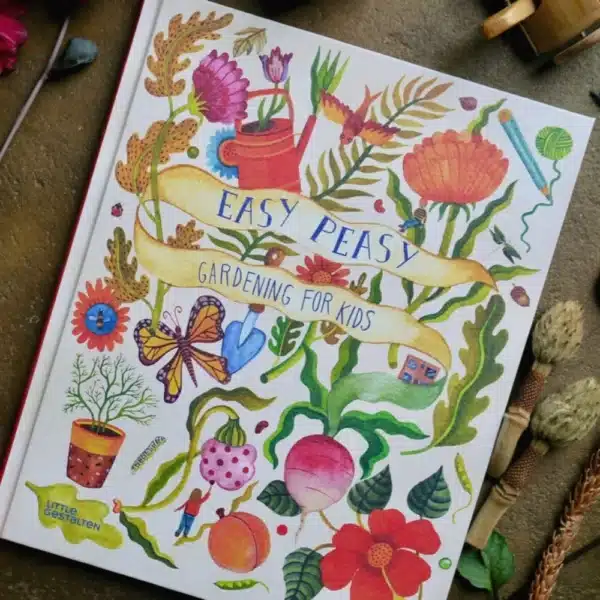
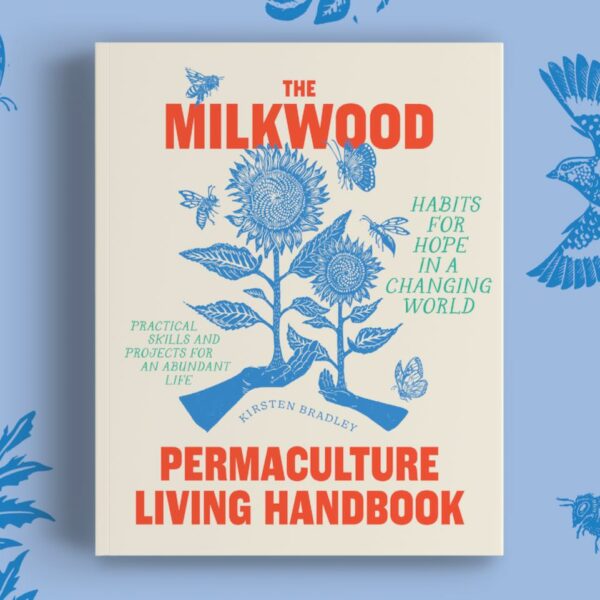
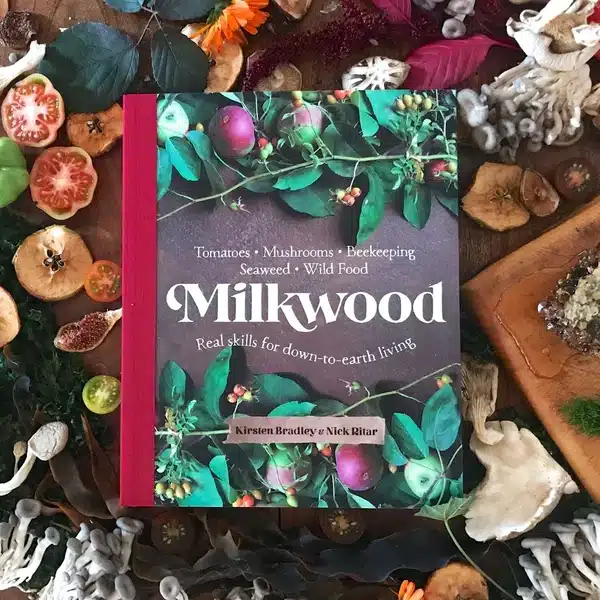






I want to try to put out my excess seedlings (usually trees) and eggs. Just got to set up a space.
Sounds fabulous, Tess. Tree seedlings – how brilliant! Wishing you the very best of luck with it 🙂
Would love to do this one day when I don’t work full time. In the meantime I’m creating the garden to support it. We have a orchard of 20 fruit trees, large veggie garden, chickens and a bee hive which I’m sure will soon become more then one. Love the thought of doing this 😊❤️
Oh wow, your garden sounds absolutely incredible. A little honesty stall would be the perfect addition one day 🙂
Thank you! We are in transition but would love to star doing this & other sharing community tings once we have a place. Always helpful to get ideas from those who have “gone before”
You’re so welcome, hope it proves helpful 🙂
the more ideas the better, we figure 🙂
Oh, the serendipity! Last week my partner started collecting seeds from our flowers and putting them out on the fence for the taking in a little pocket she banged up and we’ve been talking about an honesty box situation given our glut of zuccs and pickles and jams. If this isn’t a sign! 😛
Meant to be! Good luck with bringing your lovely little project to life.
I run a Seed Library which has free seeds and seedlings in Devonport Tasmania. It’s got heaps of helpers and I’ve made so many friends on the way. Started it after our very strict lockdown as a way to keep depression at bay. It is so rewarding and I would encourage any thinking of sharing, or contributing to existing libraries to give it a go.
Oh wow, what an amazing project for your local community, and such an important one too. Go, you! 🙂
so good to hear 🙂
Dear Koren, thank you for your inspiring post. We have our own little roadside stall outside our fence line. I love it, but I do wonder sometimes about liability risks – which is a real fun stopper. What if someone gets hurt despite all efforts to be safe? E.g. a car stops and another one runs in the back. Or a person trips in front of the stall or someone gets bitten by a wasp or a jumping ant. Have you had any thoughts on this?
How fabulous, Bee! I hope your stall is going marvellously. It would be worth checking local laws in your area and doing your best to get on the right side of them, I’d say. You could also see if there’s any non-profits in your area that help out with insurance – here in South Australia, for example, Sustainable Communities SA allows people to join for $10/year, which then covers their insurance.
As I’m in Germany it’s deep winter right now and everything in my area is covered by snow. But I’m preparing to share seeds and seedlings as soon as spring comes around. Not living close to the garden I care for, I will only once a week be able to have my little desk out. Do you have any ideas how to spread the news to our neighbors especially in lockdown-times?
Hello, Katrin, hope all is well in Germany 🙂 This sounds like a wonderful idea. I’d say simple things like flyers and signage can make all the difference, and a social media account, if you’re into that kind of thing. There are some suggestion in this blog post, if you’d like to take a look: korenhelbig.com/how-to-make-an-urban-roadside-honesty-stall/ Good luck!
Brilliant idea!! Thanks for inspire me.
I have never seen this before and accidentally stumbled upon you on the Internet and your article is a shock to me! I’m just in awe of this idea. We only once had the same system with books back in school, we came and gave our book, which we had already read, and in return, we took some of the posters with books. Just tell me what is the best way to spread such information on your street and how best to lure people to take part in this? Thank you very much for such a find, it’s brilliant!
Yay! Simple things like flyers and signage can make all the difference, and a social media account, if you’re into that kind of thing. There are some suggestion in this blog post, if you’d like to take a look: https://korenhelbig.com/how-to-make-an-urban-roadside-honesty-stall/
We started our farm gate on January 22nd. It’s been going great! Sell mostly eggs (once getting the paperwork needed to sell eggs) but also any excess veggies from the garden. Some days are quiet, some blow my mind and i need to scrounge around picking things for people waiting at the gate. We love it! Hoping to add excess seedlings as i pot them on
so great! What an excellent addition to life 🙂
I have a food sharing stand that I built with the intention of sharing excess vegetables from my garden. The stand has morphed into a give & take stand. People leave & take all kinds of food. It is mostly successful. There are people who need the food and take what they can use. Others are not so considerate, taking all the food at times.
Sounds like a great project, Barb – yeah there’s takers, its true, but we never can really know why they’re taking, I guess. Best to keep giving what we can regardless – especially if there’s plenty of give-back to keep your heart whole 🙂